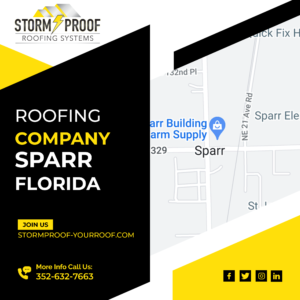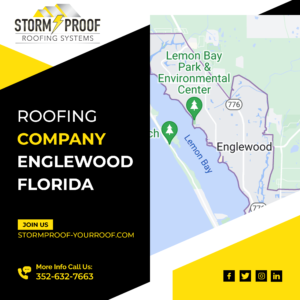Shielding Skies: Unveiling the Art of Selecting a Storm-Resistant Roof Coating
Introduction
Welcome, dear reader, to a comprehensive guide on how to choose the best roof coating for storm resistance. In the face of increasingly unpredictable weather patterns and more frequent extreme weather events, ensuring your roof can withstand the wrath of Mother Nature is of paramount importance. That’s where roof coatings come into play – they act as a protective shield, fortifying your roof against storms and their potentially damaging consequences.
The Importance of Roof Coatings in Storm Resistance
Imagine a fierce storm brewing above you. Rain pouring down relentlessly, wind howling with unwavering strength, hailstones bombarding everything in their path – it’s a tumultuous symphony orchestrated by nature.
Now picture your home, standing strong amidst this chaos, sheltered by a robust roof coating that acts as its guardian angel. Roof coatings are specially formulated materials designed to protect roofs from various weather elements and extend their lifespan.
When it comes to storm resistance, these coatings provide an additional layer of defense against heavy rain, high winds, hail impact, and even UV radiation. They serve as a formidable barrier that minimizes the risks associated with storms such as leaks, structural damage, or premature deterioration.
An Overview of Factors to Consider When Choosing a Roof Coating
Choosing the right roof coating for storm resistance requires careful consideration of several crucial factors. Firstly, climate plays a pivotal role; understanding the unique weather patterns prevalent in your region will help determine which type of coating is best suited for your needs. Additionally, evaluating potential storm hazards specific to your area—such as wind velocity or frequency of hailstorms—will aid in selecting optimal protective properties.
Furthermore, assessing the current condition and age of your roof is essential before making any decisions regarding coatings. Are there existing issues like cracks or leaks that need fixing?
Is your roof relatively new or nearing the end of its lifespan? These factors impact the type of coating that will provide the most effective protection and longevity.
Thoroughly researching different types of roof coatings available in the market is vital. Each coating material has its own set of advantages and disadvantages, and understanding these distinctions empowers you to make an informed choice.
Consider aspects such as reflectivity and energy efficiency, durability and flexibility, UV resistance, color retention, and waterproofing capabilities when comparing various options. End of Section 1/6
Understanding Roof CoatingsDefinition and Purpose of Roof Coatings:
Roof coatings are protective layers that are applied to the surface of roofs to enhance their durability and resistance to various weather conditions, including storms. These coatings act as a shield against harmful ultraviolet (UV) rays, moisture, temperature fluctuations, and other elements that can cause damage over time. The primary purpose of roof coatings is to extend the lifespan of the roof by preventing leaks, reducing energy consumption through increased reflectivity, and enhancing overall performance. Different Types of Roof Coatings Available:
When it comes to choosing a roof coating for storm resistance, several options exist in the market. Each type has its unique properties and advantages.
Let’s explore three common types: 1.
Acrylic Coatings:Acrylic roof coatings are widely used due to their affordability and versatility.
These water-based coatings offer excellent UV protection by reflecting sunlight away from the roof’s surface. They form a seamless membrane upon drying, which helps prevent water infiltration and enhances the overall waterproofing capabilities of the roof.
Acrylic coatings also provide good flexibility, allowing them to expand or contract with changing temperatures without cracking or peeling. 2.
Silicone Coatings:Silicone roof coatings are known for their exceptional durability and resistance against ponding water on flat or low-sloped roofs affected by heavy rainfall during storms.
They create a seamless membrane that performs well in harsh weather conditions while exhibiting excellent UV resistance properties. Silicone coatings also offer superior elasticity, allowing them to accommodate structural movements without compromising their integrity.
3. Polyurethane Coatings:
Polyurethane roof coatings provide exceptional protection by forming a durable layer upon application. They offer excellent adhesion properties along with high tensile strength, making them ideal for roofs exposed to strong winds during storms.
Polyurethane coatings are also highly resistant to impact, making them suitable for areas prone to hail damage. Additionally, they provide good UV resistance and can withstand temperature extremes without cracking or peeling, ensuring long-lasting performance.
Considering the unique characteristics of each roof coating type is crucial when selecting the most suitable option for storm resistance. Assessing factors such as climate, roof condition, and the specific threats posed by storms in your area will help determine which coating type offers the best protection for your particular needs.
Assessing Storm Resistance Needs
Climate considerations for storm-prone areas
Living in a storm-prone area means we need to be extra vigilant about protecting our homes from the wrath of Mother Nature. When it comes to choosing a roof coating that can withstand storms, the first step is to understand the climate in your region. Is it an area prone to hurricanes, heavy snowfall, or frequent thunderstorms?
Each climate has its unique set of challenges, and your roof coating should be able to handle them all. For instance, if you reside in a coastal region frequented by hurricanes, you’ll want a roof coating that can resist high winds and prevent water infiltration.
Identifying potential storm hazards (e.g., wind, hail, heavy rain)
To choose the best roof coating for storm resistance, it’s essential to identify the potential hazards specific to your area. Storm hazards can vary greatly depending on your location.
High winds may be common in coastal regions or tornado-prone areas. Hailstorms might occur frequently in regions with volatile weather patterns.
Heavy rainfall could be an issue if you live in an area prone to torrential downpours. By understanding these potential hazards, you can select a roof coating that offers superior protection against them.
Evaluating the current condition and age of the roof
Before making any decisions on which roof coating is best for storm resistance, take a good look at your existing roof’s condition and age. If your roof is nearing the end of its service life or has significant damage such as leaks or missing shingles, investing in a high-quality roof coating alone may not suffice.
It may be prudent to consider repairing or replacing parts of your roofing system before applying any coatings to ensure maximum effectiveness and longevity. Additionally, older roofs without proper maintenance might have weakened structural integrity; therefore, addressing these issues beforehand is crucial.
When assessing storm resistance needs, it’s essential to consider the climate of your area and identify potential storm hazards. By understanding the challenges posed by high winds, hail, or heavy rain, you can select a roof coating that provides appropriate protection.
Additionally, evaluating the current condition and age of your roof will help determine if any repairs or replacements are necessary before applying a roof coating. Armed with this knowledge, you can make an informed decision and safeguard your home against the fury of storms.
Researching Roof Coating Options
Comparing performance features among different coating types
When it comes to choosing the best roof coating for storm resistance, it’s crucial to compare the performance features offered by different coating types. One important aspect to consider is reflectivity and energy efficiency.
A highly reflective roof coating can significantly reduce the heat absorption into your home, keeping it cooler during hot summers and potentially lowering your energy bills. Look for coatings with a high Solar Reflectance Index (SRI) rating, indicating their ability to reflect sunlight effectively.
Durability and flexibility are also key factors in selecting a roof coating that can stand up against storms. Opt for coatings that offer exceptional resistance against cracking, peeling, and blistering.
Additionally, flexibility is essential as it allows the coating to expand and contract with temperature fluctuations without losing its protective properties. This is particularly important in areas prone to extreme weather conditions.
UV resistance and color retention
The damaging effects of ultraviolet (UV) rays cannot be overlooked when considering storm resistance. UV radiation can cause premature aging of roof coatings, leading to deterioration over time.
Ensure that the coating you choose has excellent UV resistance properties and is capable of maintaining its color even under prolonged exposure to sunlight. UV-resistant coatings not only enhance the longevity of your roof but also help retain its aesthetic appeal.
Waterproofing capabilities
In storm-prone regions, waterproofing capabilities are paramount in safeguarding your home against heavy rain or potential leaks during storms. Look for roof coatings that offer exceptional waterproofing properties to ensure maximum protection against water infiltration.
High-quality coatings should provide a seamless barrier over your roof’s surface, preventing moisture from seeping through cracks or weak spots. Exploring manufacturer specifications and testing certifications will further assist you in making an informed decision about which roof coating option is best suited for your storm resistance needs.
Manufacturers often provide detailed information about their products, including technical specifications and performance data. Take the time to review these materials carefully, paying attention to any certifications or independent testing results that validate the claims made by the manufacturer.
By considering all of these factors and comparing the performance features among different coating types, you will be equipped with the knowledge necessary to choose a roof coating that ensures optimal storm resistance for your home. Remember, investing in a high-quality roof coating is an investment in the long-term protection and durability of your home’s most vital defense against severe weather conditions.
Consulting with Professionals
A Seeking advice from roofing contractors or consultants
When it comes to making an informed decision about the best roof coating for storm resistance, consulting with professionals in the field is invaluable. Roofing contractors and consultants have extensive experience working with various roof coatings and can provide valuable insights.
They possess knowledge about the specific challenges posed by storms in your area and can guide you towards suitable options. Roofing contractors are skilled in assessing roofs, identifying vulnerabilities, and recommending appropriate solutions.
They often possess firsthand experience working with storm-resistant roof coatings and can offer valuable advice based on their practical knowledge. Similarly, consultants specializing in roofing solutions can provide expert guidance tailored to your specific needs.
Evaluating their experience with storm-resistant roof coatings
When seeking advice from roofing professionals, it is crucial to evaluate their experience with storm-resistant roof coatings specifically. Inquire about their track record in installing and maintaining these types of coatings. Ask them how many projects they have completed using storm-resistant options and if they have encountered any challenges or successes along the way.
An experienced roofing contractor or consultant will be able to discuss different types of roof coatings suitable for storm resistance, highlighting the pros and cons of each option based on real-world experiences. Look for professionals who have successfully dealt with storms similar to those common in your area, as they will likely be familiar with the most effective solutions.
Requesting recommendations based on specific needs
To get tailored recommendations from professionals, clearly communicate your specific needs regarding storm resistance when consulting them. Inform them about climatic conditions prevalent in your area such as high winds, heavy rainfalls, or frequent hailstorms. Share details about your current roof’s condition and any previous issues you may have faced during previous storms.
By providing relevant information upfront, you empower roofing contractors or consultants to make accurate recommendations that align with your requirements. They can suggest the most suitable roof coating options to enhance your roof’s storm resistance, taking into account factors such as durability, flexibility, waterproofing capabilities, and ability to withstand UV radiation.
Remember, the insights provided by professionals should only serve as guidance for your decision-making process. Ultimately, you should weigh their recommendations against your own research and personal preferences to select the roof coating that best meets your needs for storm resistance.
Evaluating Installation Requirements & Costs
The Complexity of Installation
Determining the installation requirements for a roof coating is crucial in ensuring a successful and long-lasting application. Different coating types have varying installation complexities, and it is essential to evaluate whether your chosen coating aligns with your expertise or if professional assistance is necessary. Some coatings may require specialized equipment or multiple layers to achieve optimal performance, while others can be applied more easily with basic tools.
Consider your comfort level, time availability, and skillset before embarking on a DIY project. If in doubt, consulting with experienced roofing professionals can help you make an informed decision.
Weighing Costs & Long-term Value
Cost considerations are an inevitable part of any home improvement project, and choosing a roof coating is no exception. While it may be tempting to opt for the cheapest option available, it is essential to balance cost with long-term value and performance. Cheaper coatings may provide short-lived protection but fail to withstand the test of time or extreme weather conditions.
Investing in a quality roof coating that offers excellent storm resistance can save you money in the long run by preventing costly repairs or premature roof replacement. It’s also worth noting that some coatings come with warranties that guarantee their durability and protection against storms.
Comparing Maintenance Requirements
When evaluating installation requirements for different roof coatings, considering ongoing maintenance needs is crucial for ensuring the longevity of your investment. While some coatings require minimal upkeep such as periodic cleaning or inspections, others may need more regular attention such as reapplication after several years or additional maintenance procedures during storm seasons.
Understanding the specific maintenance requirements of each coating type will help you plan ahead and allocate resources accordingly.
Conclusion
Roof coatings play a vital role in protecting your home from the wrath of storms, providing an extra layer of defense against wind, rain, and hail. By thoroughly assessing the installation requirements, costs, and maintenance demands of various roof coating options, you can make an informed decision that suits your specific needs.
Remember, investing in a high-quality storm-resistant roof coating may initially require a greater upfront cost but can ultimately save you money by extending the lifespan of your roof and preventing potential damage. So go ahead and safeguard your home with the best roof coating available – you’ll have peace of mind knowing that your castle is fortified against whatever nature throws its way!






